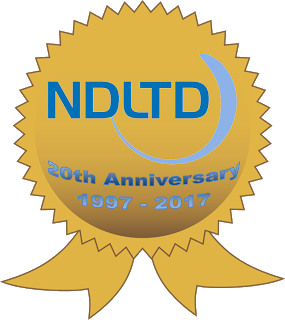posted Aug 7, 2017, 2:55 PM by NDLTD Admin
- Welcome and introduction from Edward A. Fox, Executive Director and Chairman of the Board;
- ETD 2003, the 2nd International Symposium on Electronic Theses and Dissertation, Next Steps: Electronic Theses and Dissertation Worldwide by Peter Schirmbacher, the host of the NDLTD’s first conference outside the USA;
- ETD INDIA 2015, the 18th International Symposium on Electronic Theses and Dissertations “Evolving Genre of ETDs for Knowledge Discovery” by Ramesh Gaur, the host of the first international ETD symposium in South Asia;
- NDLTD Union Catalogue Project by Hussein Suleman and hist Reflections on the South African National ETD Project;
- NDLTD Finances by Scott Eldridge; and
- NDLTD Travel Grant Program by John H. Hagen.
The NDLTD is based on a set of important ideas:
- Graduate students will continue as they receive Masters and Doctoral degrees to prepare theses and dissertations, which are important documents in their research careers.
- During their graduate education, they should learn important lifelong skills such as to communicate effectively through documents, and they can benefit by employing the latest technologies and methods for electronic communications.
- Colleges and universities seek recognition for and control over their intellectual property and clearly benefit from sharing the fruits of graduate research as openly and widely as possible. This can easily be done through digital libraries, e.g., institutional repositories, which also save space and time and expense relative to other approaches to managing theses and dissertations.
- Methods for sharing and collecting metadata about ETDs allow cost-effective regional, national, and international gathering of the global fruits of graduate research into a Union Catalog and Global Search Service, which can be led by the NDLTD.
- Students, faculty, librarians, graduate schools/registrars, and regional/national consortia are among the many interested stakeholders who all benefit from this global collaboration. More broadly, the ETD initiative can aid learners, teachers, scholars, researchers, and the many others interested in this rich genre.
- Into the future, ETDs can continue to lead the way in unfolding new methods of electronic publishing, sharing datasets, reproducible scholarship, use of multimedia/hypermedia technologies, curation, preservation, and digital library services. This is a low cost and highly effective ongoing method for advancing scholarly communication.
As a volunteer organization, NDLTD needs YOU! Please help by serving on a working group or committee, or by helping advance local or regional activities. The ETD initiative is based on simple ideas but calls for collaboration and concern for students and quality. It moves forward if we are open to innovation and change, which are essential ingredients of graduate research as well as scholarly communication.
There are clear benefits of ETD events to those new to the ideas; problems can be discussed, questions answered, best practices identified, and tools/techniques shared. Likewise, there are benefits to those who have worked in this arena for years, in part from the satisfaction that comes from sharing and mentoring. Even more, those with experience can address new challenges, e.g., 1) as the numbers of ETDs (now over 5 million) lead to problems of scale, and 2) as the global harvesting method calls for improved attention at all levels to quality of metadata and services as well as standardization.
Please help all colleges, universities, libraries, graduate students, faculty, administrators, and researchers to move toward the time when EVERY thesis or dissertation in the world is shared in the most effective way, as openly as possible, and utilized optimally to improve humanity.
|
|


